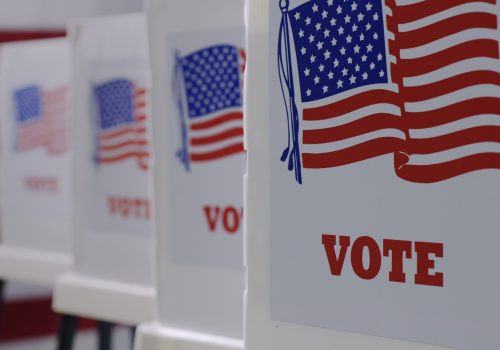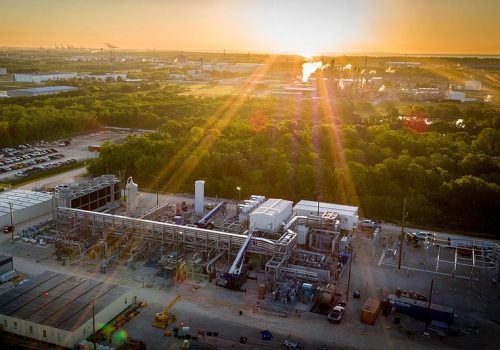Languages
PersianEvents
All Content
Emily Burlinghaus is a nonresident fellow with the Atlantic Council’s Global Energy Center and a German Chancellor Fellow based at the Institute for Advanced Sustainability Studies in Potsdam, Germany. Prior to her fellowship, she worked as an assistant director with the Global Energy Center, where she focused primarily on the annual Global Energy Forum in Abu Dhabi and research and programming related to nuclear energy. Before joining the Atlantic Council in June 2019, she served as a program officer with the Institute of Regional and International Studies at the American University of Iraq, Sulaimani (AUIS), where she worked with academics and entrepreneurs to inform research and private sector development priorities across Iraq.
Emily has also worked as a research assistant with The Washington Institute for Near East Policy’s Iran Security Initiative and spent a year abroad in the United Arab Emirates and conducted research at think tanks in Washington DC, including the Hudson Institute and the Middle East Program at the Center for Strategic and International Studies. She graduated from New York University with a bachelor of arts in Middle Eastern and Islamic Studies and is currently pursuing a Master of Science in Energy Policy and Climate from Johns Hopkins University.
Publications
- How to Keep the Lights on in Kurdistan, Foreign Policy, July 9, 2019
- Entrepreneurs in Iraq won’t end corruption but they will drive private sector reform, The National, September 5, 2018
- The Electronic Republic: How Sanctions Could Damage Iran’s Startup Scene, Foreign Affairs, October 31, 2017
- The Other Green Movement: Renewable Energy’s Prospects in Iran, Foreign Affairs, April 27, 2017



